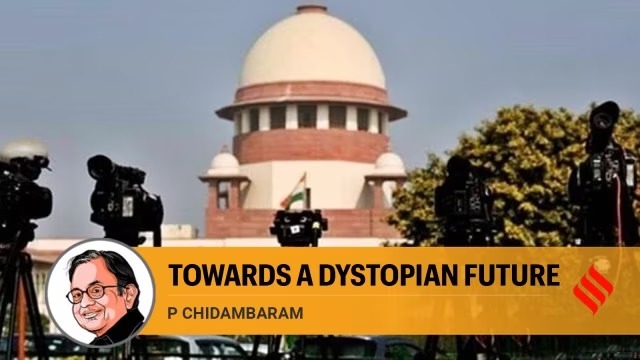The Court noted that between 1950 and 2019, the provisions of the Indian Constitution were gradually extended to J&K, with the “abrogation” of Article 370, a provision that was only meant to be transitory, marking the end of the process.
Every Indian citizen must abide by the law pronounced by the Honourable Supreme Court. As a result, it deserves the highest regard and compliance. A Constitution Bench of the Court issued a unanimous decision on December 10, 2023, maintaining the “abrogation” of Article 370 of the Constitution. The former state of Jammu & Kashmir was declared to have lost its special status by the court.
The Court noted that between 1950 and 2019, the provisions of the Indian Constitution were gradually extended to J&K, with the “abrogation” of Article 370, a provision that was only meant to be transitory, marking the end of the process. Though opinions on the conclusion’s accuracy may vary, the logic of the reasoning seems to follow. Nevertheless, there are also troubling aspects of the “abrogation” of Article 370, such as the legality of the procedure that the federal government and Parliament followed and its consequences for “federalism” and “states’ rights.” These issues affect all of the nation’s states, not only Jammu and Kashmir.
What the Court Decided
Three key findings were drawn from the court’s decision:
1. That the federal government’s process went beyond what was allowed by Article 368 of the Constitution. There is only one option to modify a provision of the Constitution, and that is to use Article 368 and pass a Constitution Amendment Bill in Parliament with the necessary special majority. The central government used Article 370(1)(d) in the Jammu and Kashmir case to add clause (4) to Article 367 (the Interpretation clause), replace the words “Constituent Assembly of the State” with “Legislative Assembly of the State” in the proviso to Article 370(3), and abrogate Article 370 using the “amended” Article 370(3). Please read the Court’s justification for declaring the complex exercise to be unconstitutional: Paragraph 389 “…As Although the “interpretation” clause can be used to clarify or give meaning to certain terms, it cannot be used to change a provision without following the prescribed method (Para 400).

































